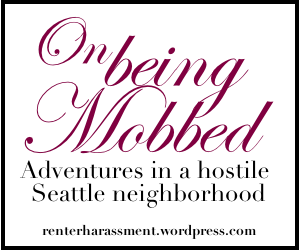Albany used to be Berkeley. But as refugees of the 1906 earthquake fled San Francisco for the fertile soil of the Ohlone, land use disputes began to brew. By 1908, a small settlement clustered around what is now the intersection of Solano and San Pablo Avenue became aggravated by the then incorporated Town of Berkeley dumping its garbage in their community (“Berkeley, California,” in Wikipedia, https://en.wikipedia.org/wiki/Berkeley,_California).
Dissatisfied with the ongoing discussion on how to settle the matter, a group of women armed with two shotguns and a 22-caliber rifle turned back horse-drawn wagons of garbage (A Brief History of Early Albany, https://web.archive.org/web/20140111020611/http://albanychamber.org/?page_id=43). The City of Ocean View incorporated on September of 1908, the following year renaming itself the City of Albany (“Albany, California,” in Wikipedia, https://en.wikipedia.org/wiki/Albany,_California).
Albany is a small city in which the largest employer is the Albany Unified School District. The fourth largest employer is Golden Gate Fields, with a troubled legacy of race horse deaths (“Golden Gate Fields,” in Wikipedia, https://en.wikipedia.org/wiki/Golden_Gate_Fields). The fifth largest employer is the City of Albany itself, whose payroll appears to include at least a few of those engaged in attempts to turn over properties and thereby increase the City’s take of property transfer and other taxes.
Based on the continued pitched and brutal battle over my childhood home in Albany and the involvement of some connected to the City of Albany in an apparent attempt to force the house onto the market, it appears that Albany is not satisfied with its yield of taxes.
Given what I’ve been through here in Albany, if you’re in a similar situation you might consider whether an offer has been made on your home, to someone other than you. A mobber once quipped, after all, that my mobbing was “a professional real estate hit.” At any rate, in a town of some five square miles, chances are many of us have neighbors, including block coordinators, who work for or with the City of Albany. That condition might put the odds against home owners when the turnover of single-family homes is viewed as a benefit to the city. It may be that in cities like Albany—cities that have a small tax base—the focus of local government is not strictly on the wellbeing of the community. Some towns are too small for ethics.
If there are people out there who feel similarly and know what it would take to put the dissolution of Albany on a ballot, I would be more than happy to provide an endorsement. Perhaps Berkeley would consider reabsorbing the city, even without the dump (“Albany Bulb,” in Wikipedia, https://en.wikipedia.org/wiki/Albany_Bulb). I’ll make the bumpersticker—”Make Albany Berkeley Again”. It might not make it great, but it will certainly make it nicer.
(If that fails, perhaps residents of the City of Albany should work to erode Albany’s tax base by giving their properties to nonprofit land trusts and real estate co-ops. Increasing the numbers of properties in the hands of these organizations will help to discourage forced eviction. Any city involved with forcibly evicting legal residents for profit cannot be a good steward of the land. We must assume stewardship for them.)
